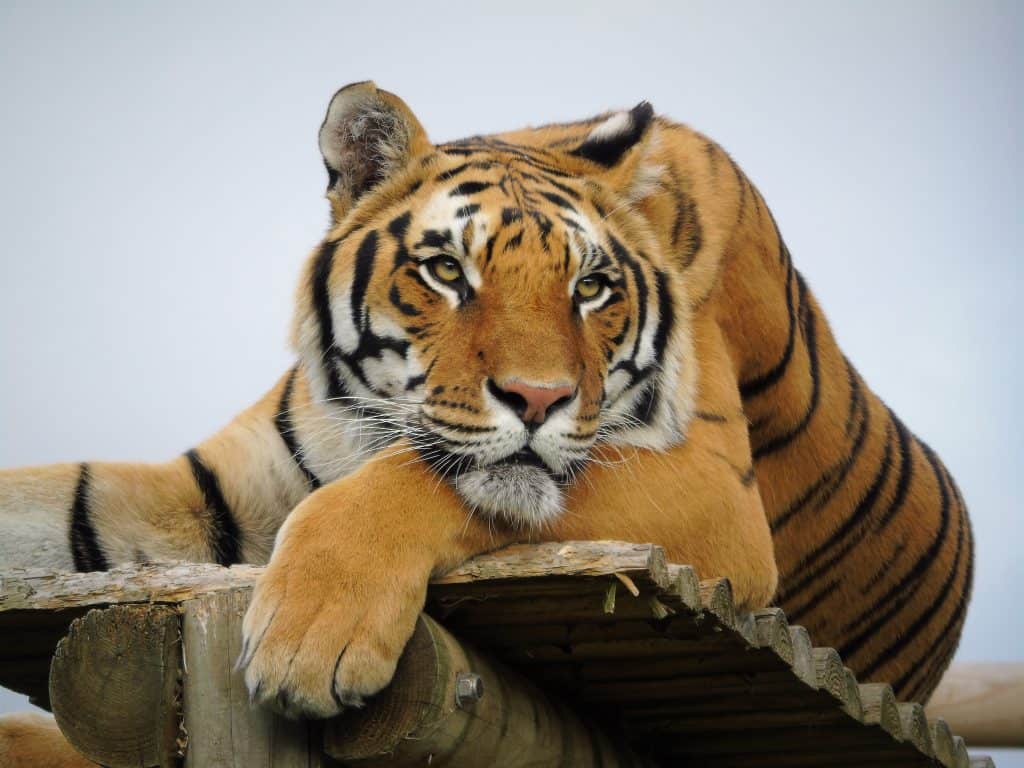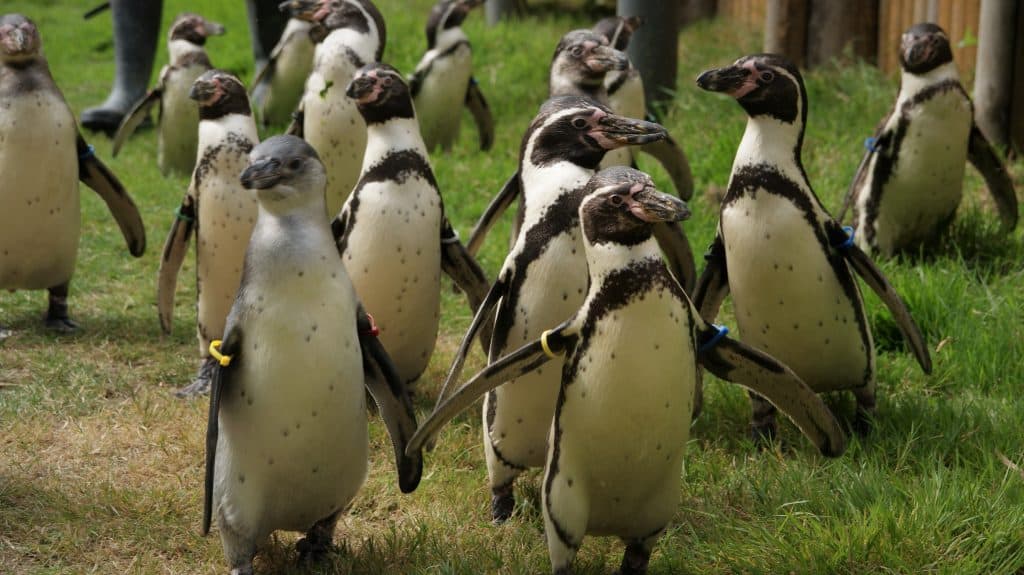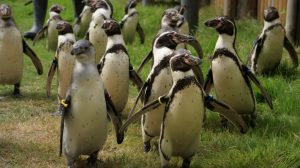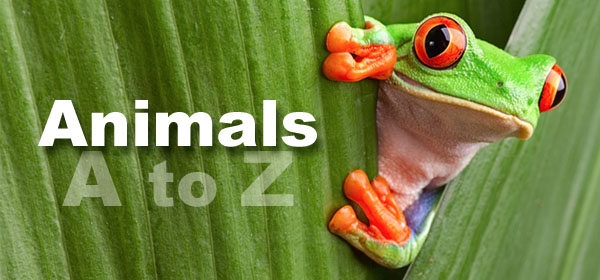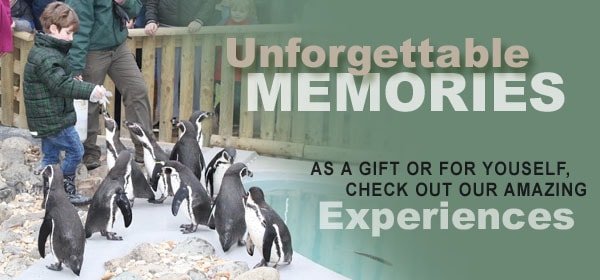Learn about dinosaurs and fossils at this top Kent education provider
Discover a wide variety of carnivores from around the world at our park. Our collection includes carnivore species belonging to mammal, reptile, amphibian and invertebrate classifications.
History & Geography
British Carnivores Past & Present
- Use information available to learn about the carnivores which used to roam our isles such as brown bears and wolverines. This can help children understand why and how some species become threatened and that humans can affect the environment and sometimes pose dangers to living things.
- See for themselves a few of the species which have become regionally extinct in the UK such as the Eurasian lynx and learn about possible projects to reintroduce these species in the future. This can demonstrate to students that humans can also have a positive impact on wildlife.
- Discover carnivores which still exist in the UK such as European wildcats.
Carnivores Worldwide
- Use maps available on many of the enclosures to explore where our carnivores exist in the world and learn about different habitats.
- Identify countries, continents and oceans to gain knowledge about different habitats and use this to understand how and why animals adapt to their surroundings.
- Visit carnivores native to Africa, Europe, South America, North America, Australia and Asia.
Pre-historic Carnivores
- Explore our animatronic Dinosaur Zoo to discover a variety of carnivorous dinosaurs.
- Children can witness for themselves our carnivorous dinosaurs preying upon herbivores to develop their understanding of the food chain system and recognise that some animals obtain their food from other animals.
Science
Basic Needs
- Children can witness and discuss the different foods our animals eat to help them understand that animals get their nutrition from their food and that different animals require different amounts and types of nutrition.
- All of our enclosures have signs which include information about the animals habitat, diet, threats etc which can help children to learn about the similarities and differences of various animals basic needs which they can compare to their own.
Physiology
- Our ethnography and natural history museum provides an opportunity for students to look at a lion and crocodile skull and consider the shape and function of a carnivores teeth. This will help students to identify what diet an animal has by using their teeth as evidence.
Circle of life
- Children can see for themselves that the food chain begins with green plants and ends with large predators such as our lions and tigers.
- Students can construct their own food chains using the variety of animals at our park to help them understand the terms ‘herbivore’, ‘omnivore’, ‘carnivore’ ‘predator’ and ‘prey’.
- Learn about the impact on a food web if a food source becomes unavailable by visiting species such as our Humboldt penguins who’s numbers are decreasing in the wild due partly to declining food sources- consider how this will continue to affect not only the penguins but animals higher on the food chain too. This can highlight that living things need other living things to survive and that they all depend on each other in different ways.
PD (H&SC)
Human responsibility
- Develop an understanding that humans have a responsibility to care about our impact on food chains and habitats.
Reading
Statutory key stage 1 & 2 words
- Ten key stage 1 and another ten key stage 2 words from the statutory word lists are on display in the Dinosaur Zoo with a short explanation of their meaning. The reading word is used in the example given to develop children’s understanding of the word itself and ability correctly spell/read it.
Teaching outcomes lead to being able to…
- understand the meaning of the term carnivore.
- identify different carnivore species and distinguish them from herbivores.
- understand key vocabulary in relation to food chains.
- identify that animals need the right types of nutrition which they get from what they eat.
- gain knowledge of a carnivores position on the food chain and in the circle of life.
How to best use our zoo and other exhibits during a school visit:
This self-guided tour is one of a series of itineraries we have prepared for schools. The Carnivores adaptation highlights the following exhibits and species.
- Wolves
- Smooth Coated Otters
- Reptile House
- Ethnography and Natural History Museum
- Tigers
- Penguins
- Big cats
- Dinosaur Zoo
- Clouded Leopards
- Eurasian Lynx
We recommend you begin your tour at the wolf exhibit which is easily accessed from the entrance. Follow their enclosure along and you will reach our smooth coated otters after which you can make your way over to the Reptile House. This area is home a variety of carnivores across reptile, amphibian and invertebrate classifications. Next our museum is home to a number of interesting items including lion and crocodile skulls which are ideal for studying the teeth of. After this you can see our tigers en-route to our colony of Humboldt penguins.
From here you can walk around the lake where students can see a number of small, medium and large cats including European wild cats, lions, jaguars and cheetahs. After you have finished here you can easily reach our Dinosaur Zoo to see life-sized animatronic dinosaurs and children can take down relevant key stage words. Little Himalaya is just around the corner from here and home to Asian short clawed otters, binturongs, clouded leopards, Eurasian lynx and moon bears.
Along this route you will see additional carnivores including meerkats, kookaburras and pumas. You may also be interested in the following talks which offer an opportunity to learn more about the threats these animals face and their diets here at the park and in the wild. Talks also present the opportunity for you and the students ask our keepers any questions.
- Otter talk 12.00
- Penguin talk 13.00 & 15.00 pm
- Big cat talk 14.00 pm
- Tiger talk and feed 14.30 pm
To help children to learn more about this subject we recommend pairing this itinerary one of the following education talks,
- On the hunt- the circle of life
- Different teeth for different jobs
- Let’s talk about poo and pellets
Some interesting facts and learning points:
- European wild cats once inhabited England and Wales but due to heavy persecution now only survive in small numbers in Scotland.
- Piscivores are carnivores which mostly eat fish (like our Humboldt penguins and smooth coated otters) and insectivores are carnivores which mostly eat insects (such as our chubby frogs and white knee tarantula).
- Carnivores that are at the top of the food chain, such as our Jaguars are known as apex predators.
- Carnivores have blade like teeth in their upper and lower jaws which work like scissors to shear flesh.
- Lions rest for roughly 16-20 hours a day. This is because hunting prey takes an incredible amount of energy. Sleeping reserves their energy for stalking, running, pouncing and fighting.
- All energy on Earth comes from the sun, which is transferred up through the food chain all the way from plants to top predators and recycled back into the soil at the end of the food chain creating the circle of life.
What schools think of an educational day out in Kent with Wingham Wildlife Park
After every school visit we ask a teacher from the group to fill in a short email form about their day with us. We are always looking to improve the experience for the kids as well as the teachers and helpers, so please do take the time to fill one of these in if you decide to join us for a day with your class. Here is what some of our past teachers have said about a school visit to Wingham Wildlife Park!
Find out more & book
To find out more about booking one of our educational visits please check out our website, give us a call or simply fill in the form below:
